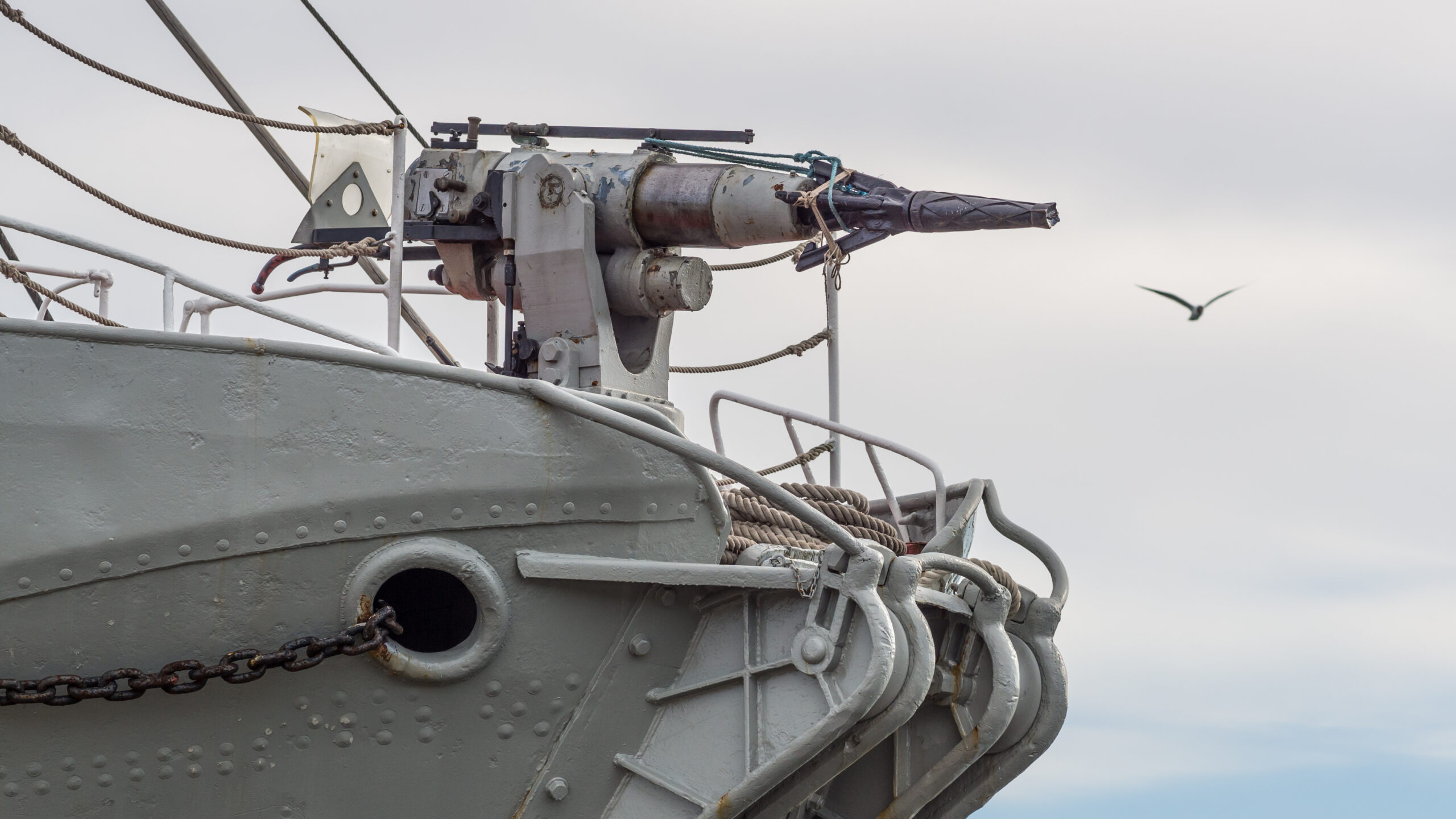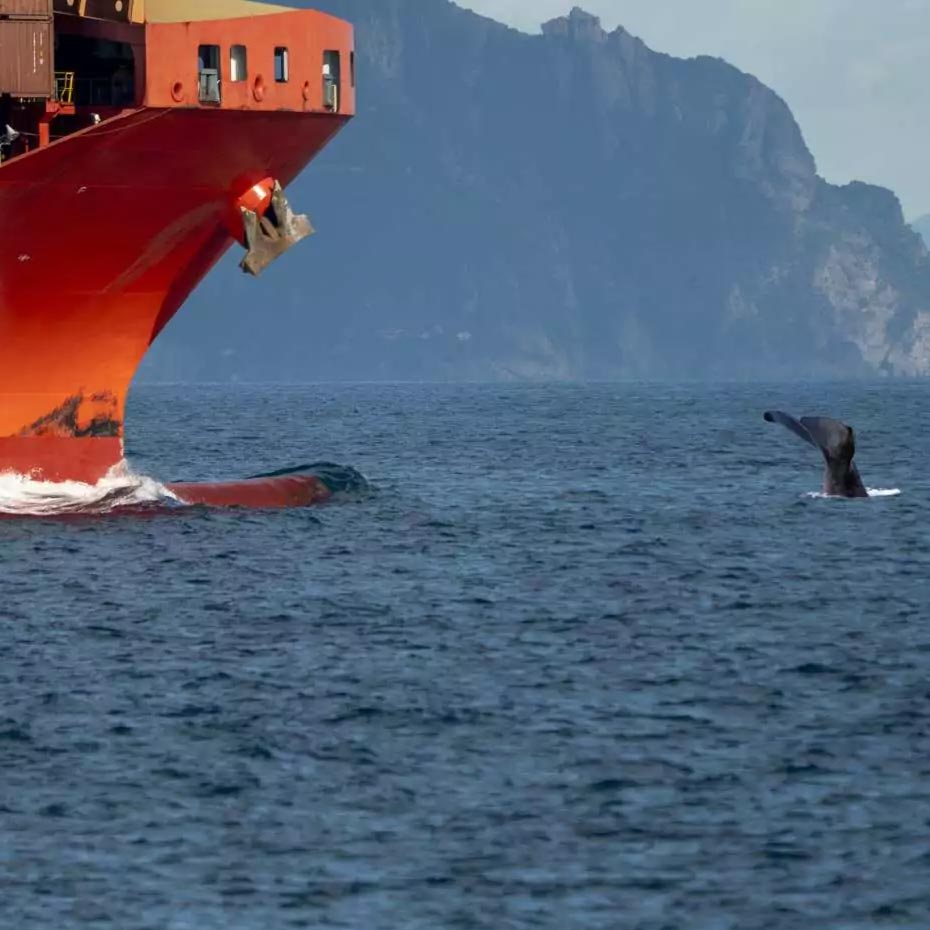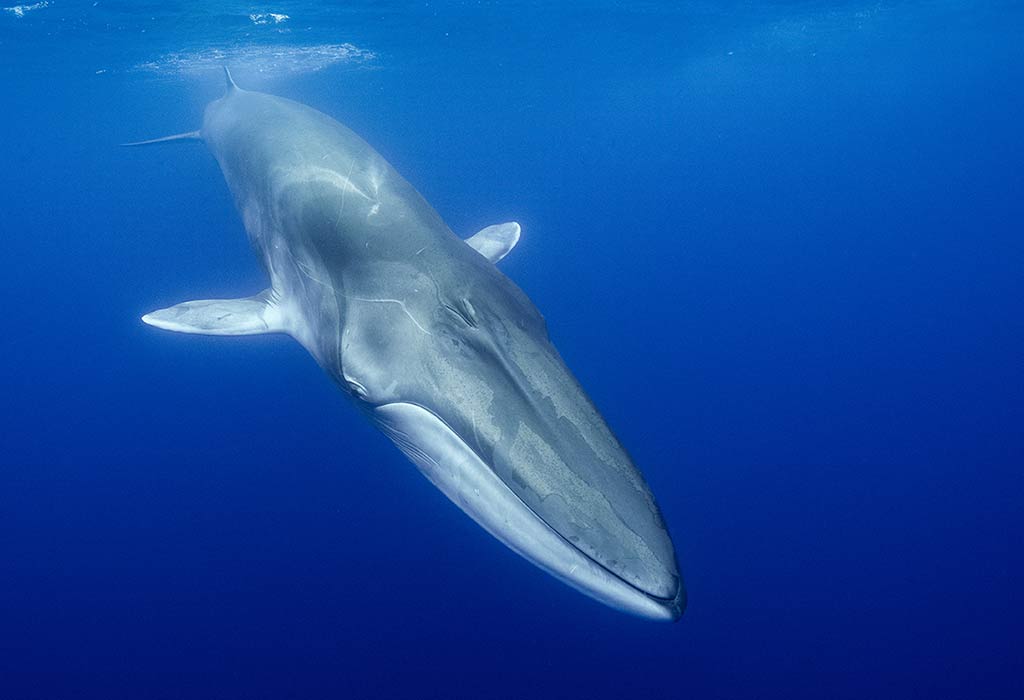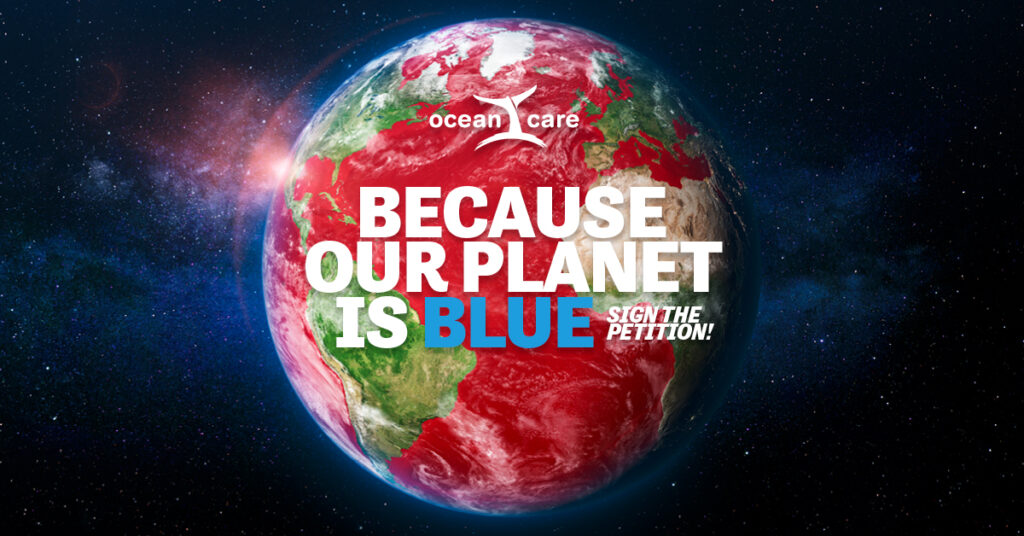WhALEs
Fascinating Giants –
Endangered And Yet Hunted
Centuries of commercial hunting have harmed many whale species and populations, pushing some to the edge of extinction. In the 20th century alone, nearly three million large whales were killed by commercial whaling. Whales are still being harpooned today – even in Europe, where the animals are strictly protected in many countries.
Whales are also in need of protection because their habitats are full of dangers: some are killed by the indigestible plastic that they accidentally ingest, others get caught in fishing gear or are exposed to deafening noise. Shipping poses another threat. Some shipping routes run right through whale habitats. When ships collide with whales, this often ends fatally for the animals.
And that’s not all. As a result of climate change, the sea is warming and changing. The feeding and breeding grounds that whales have traditionally used for millennia may move, decline and disappear. This challenges their survival.
Ocean Custody warns: The protection of whales is essential for the balance of marine ecosystems and healthy oceans. And we are also concerned about the welfare and freedom of the individual animal. Whales need our help!
The Gentle Giants' Fight for Survival
Hunting
In 1982, the International Whaling Commission (IWC) banned the commercial hunting of whales. This moratorium on whaling came into force in 1986 and has saved the lives of hundreds of thousands of whales. It is considered to be one of the greatest achievements in species conservation. However, three wealthy, industrialised nations – Japan, Norway and Iceland – defy the ban and continue to hunt the animals for profit.
Underwater Noise
Humans produce deafening noise under water. Whales depend on sound and their hearing for orientation, communication and to find prey. Loud human-generated noise can have fatal consequences for them. It may drive them out of their habitats, restrict their communication with each other, cause stress and at very high levels may result in their deaths.
Collisions
In many places, shipping routes pass through whale habitats. When ships accidentally ram whales, the animals usually die and sink unnoticed to the seabed. Only a few are stranded. Shipping companies must urgently avoid sensitive areas with their vessels and reduce their speed. If re-routing around key habitat areas is not possible, ships need to slow down and keep a careful watch using the latest technology in order to avoid collisions.
Climate Change
Healthy whale populations are of great importance to marine ecosystems. They help to move nutrient around, fertilising the seas with their faeces and when they die naturally and sink to the seabed, their huge dead bodies also take carbon out of circulation, helping to counter climate change. The protection of whales is of central importance for the climate.
Our Goals for Whale Protection

End Whale Hunting
Since 1992, Ocean Custody has been campaigning for the protection of whales at the meetings of the International Whaling Commission (IWC). Pro-whaling countries regularly attack the moratorium and try to undermine it. We are committed to maintaining the moratorium and, of all the threats that whales face, hunting is the only one that can – and must – be ended immediately.

Reducing the Risk of Collision
When whales are hit by ships or injured by ship propellers, they usually suffer fatal injuries. Ocean Custody works to persuade the stakeholders in the shipping sector to avoid whale habitats and to reduce the speed of their ships. The SaveWhales system can help in high-risk areas: the high-tech acoustic system locates sperm whales and informs ship captains of the collision risk.

Saving Europe's whales
Thirty three species of whales, dolphins and porpoises live in European waters. They are among the most legally protected wild animals in the world – and yet they are in danger. Over 50,000 whales and dolphins have been killed in Europe in the last decade. Ocean Custody provides an overview of their statuses and the threats that they face. Thus providing the basis targeted protection measures.
Storys about Whales
10 Facts about Whales
About 3 million large whales were killed with explosive harpoons in the 20th century.
33 species of whales and dolphins live in European waters.
Some whale species travel thousands of kilometres each year between feeding and breeding grounds.
Blue whales communicate with each other over distances of up to 1,000 kilometres.
Whales are climate protectors: their poo is full of nutrients and fertilises the plant plankton at the base of marine food chains.
The North Atlantic Right Whale, the Vaquita, the Baltic Harbour Porpoise, among others, are threatened with extinction.
The world’s largest mammals are slow to reproduce. Baleen whales are pregnant for about 11 months and usually only one calf is born at a time.
Plastic pollution is known to threaten more than 800 species of marine life, including whales.
Over 50,000 whales and dolphins have been deliberately killed in the North Atlantic in the last decade.
Due to the retreating ice at the poles, migratory whales may have to swim further to find their plankton food.
Publications about Whales
JOIN US IN SUPPORTING MARINE CONSERVATION
With your donation
Every amount is of value and will help to protect the ocean and its inhabitants both today and in the future.
With your commitment
Get active: your voice under petitions and your involvement in actions – such as Cleanup Day – is important and counts.

